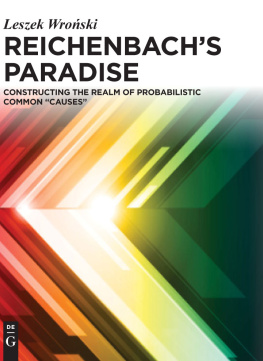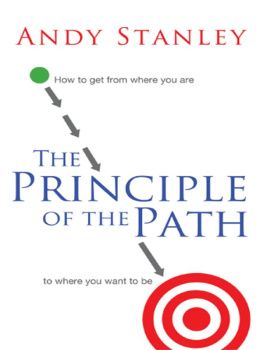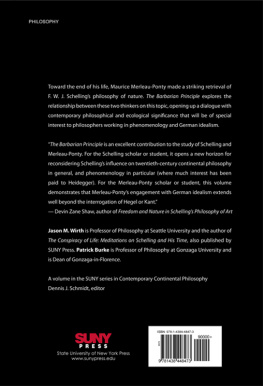Contents
Leszek Wroski
Reichenbachs Paradise
Constructing the Realm of Probabilistic Common Causes
Leszek Wroski
Reichenbachs Paradise
Constructing the Realm
of Probabilistic Common Causes
Managing Editor: Anna Michalska
Language Editor: Sara Tavares

Published by De Gruyter Open Ltd, Warsaw/Berlin

This work is licensed under the Creative Commons Attribution-NonCommercial-NoDerivs 3.0 license, which means that the text may be used for non-commercial purposes, provided credit is given to the author. For details go to http://creativecommons.org/licenses/by-nc-nd/3.0./
Complimentary Copy Not for Sale
Copyright 2014 Leszek Wroski
ISBN 978-3-11-037270-0
e-ISBN 978-3-11-037271-7
Bibliographic information published by the Deutsche Nationalbibliothek
The Deutsche Nationalbibliothek lists this publication in the Deutsche Nationalbibliografie; detailed bibliographic data are available in the Internet at http://dnb.dnb.de.
Managing Editor: Anna Michalska
Language Editor: Sara Tavares
www.degruyteropen.com
Cover illustration: IStock/VikaSuh
To my parents
Acknowledgments
First and foremost, my thanks go to Professor Tomasz Placek, the best PhD supervisor in any bundle of branching space-times.
My interest in the subject sparked during the 08 Summer School in Probabilistic Causality at the CEU University in Budapest. I would like to thank Professor Mikls Rdei for introducing me to the problems discussed in .
I owe a great deal to Michal Marczyk, with whom I extensively worked on the issues of causal closedness of probability spaces. Most of the material in chapters is our joint result.
I am grateful to the faculty and PhD students of the Epistemology Department at the Institute of Philosophy of the Jagiellonian University for insightful comments after my talks regarding the issues covered in this book. I would also like to thank Jakub Byszewski, Lech Duraj, Michal Skrzypczak, Michal Staromiejski and Andrzej Wroski for helpful discussions on mathematical topics.
On the side of the Publisher I would like to thank Anna Michalska, the Managing Editor for Philosophy, for supervising the preparation of this book. The comments of the Language Editor, whom I only know as Sara (and who has not seen this paragraph), were invaluable; in one case they lead to a reformulation of a section discussing open formal problems. I would also like to express great thanks to the two anonymous Reviewers whose detailed input enabled me toI hopeimprove the book. Special thanks are due to the Reviewer who suggested changing the title.
I would also like to thank the friendly internet community of RPG Codex for some moments of inspiration.
Relation with papers in print or previously published
Most of the mathematical results herein stem from my PhD dissertation (.
Introduction
Philosophical concepts change through history, with new notions becoming intertwined with old ones, while familiar principles acquire new formulations. With ongoing progress in mathematics, some philosophical ideas obtain a formal dimension, which may shed light on unresolved issues. This has happened e.g. with the notion of cause, in which case theories of probabilistic causality added rigour and clarity to former discussions. We should of course keep in mind Aristotles well-known point that . Some people make this the basis of their opinion that the higher the level of precision, the lower the potential philosophical insight. I agree there is a risk of losing track of philosophy with a capital among formal details, but in my opinion it is fascinating that one can apply formal tools to analyse some aspects of a philosophical notion. If these tools are mathematical, the endeavour should simply be called mathematical philosophy. But there is the other side of the medal: some mathematically oriented philosophers believe non-formal philosophy to be inferior in some wayI do not share this opinion. One can be a philosopher in a variety of ways. Contrary to what some formal philosophers may think, non-formal philosophy is not easier. Solving an open formal problem may be not more difficult than arriving at a good argument in an informal context, especially when the notion of a problem and its openness is vague at best. On the other hand, only after attaining informal insights do we know which formal questions to ask.
Still, most of the insights I would like to believe this book to have are of a formal nature. I will very briefly point at some non-formal directions in which one could continue dealing with the topic, but I will not pursue them. I would rather like to investigate in detail the formal aspects of the notion of common causewhich has, since the work by Hans Reichenbach, achieved an explication in at least partially mathematically tractable terms of events and probabilitiesand, in particular, the common cause principle.
In one of its most basic and informal shapes, the common cause principle states that any surprising correlation between two factors which are believed not to directly influence one another is due to their (possibly hidden) common cause. In the history of philosophy it is easy to find examples of similar reasoning; one needs to look no further than the mind-body problem. There is a truly astonishing correlation between our thoughts of the I want to wave my hand sort and the movements-of-our-hands of the waving sort. A venerable solution to this quandary is that of invoking God as the common cause (which was the road taken e.g. by Malebranche).
We can perhaps look for similar causal intuitions in Mills System of Logic. From the fifth Canon of Induction it follows that a concomitant variation in two phenomena of which none is a cause of the other is a sign of a connection between the two by some fact of causation. Mill begins his exposition of the Canon by referring to the case in which this fact is the phenomena being two effects of a common cause (Vol. I, Book III, Chapter VIII of notion of the principle in Reichenbachs formulation, and of the current essay, is that of screening off: two correlated events are screened off by a third event if conditioning on the third event makes them probabilistically independent. Reichenbachs principle marks also the beginning of a new field of philosophy, namely, that of probabilistic causality.
The main results of this work are presented in chapters contain mathematical results concerning these issues, regarding not only the exact notion used by Reichenbach but also some of its modern variations. The results will lend themselves to opposing interpretations: on the one hand, they are positive answers to some open mathematical problems, stating the virtually universal existence of explanatory events satisfying philosophically motivated mathematical conditions; on the other, though, whether these events will be of genuine explanatory value in general, whether they will correspond to some concrete phenomena we could use in subsequent explanations is highly doubtful.
In we briefly present the formulation of Reichenbachs principle which can be found in the field of representing causal structures by means of directed acyclic graphs.
Funding information
Support from:
the Polish Ministry of Science and Higher Education PhD Grant N N101131936;
the Polish Ministry of Science and Higher Education research grant 668/N-RNP-ESF/2010/0 (head: Tomasz Placek);
and the Foundation for Polish Science START Fellowship is gratefully acknowledged.












